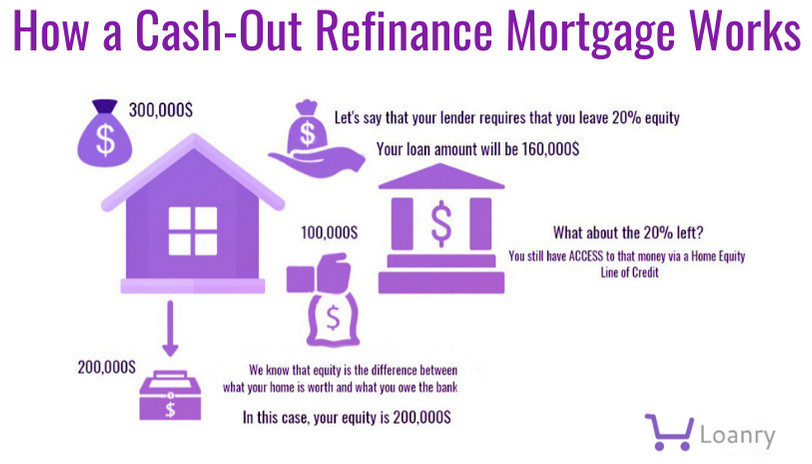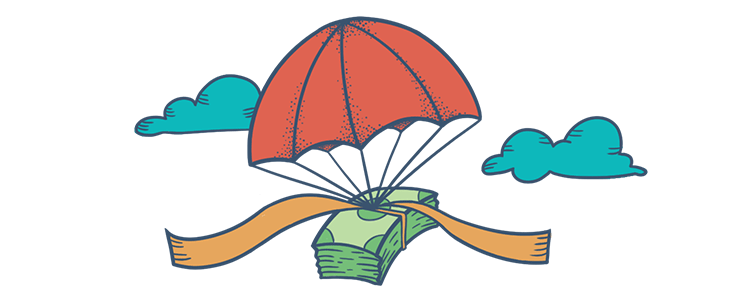
If you are looking to improve your credit score by using extra savings, a cash-out refinance might be an option. Cash out refinance requires a lower credit score than conventional mortgage loans. However, the closing costs are higher than those for a personal loan. You might also have to pay mortgage insurance (or PMI).
Rates are lower than credit card rates
Cash out refinance allows you to tap into the equity in your house as a source for cash. You can use the money for many different purposes. You can save for retirement and buy an investment property. High interest debts can be paid off with a cash-out refinance. Using the cash from a cash out refinance can help you pay these debts off with just one monthly payment. You can withdraw the money to pay for your children's college education. The refinance rate must not exceed the student loan's interest rate.
Home equity credit is another option for cash out refinance. This loan allows you to borrow the difference between your home's value and the balance on your mortgage to pay off your credit card debt. Many credit cards charge interest rates up to 30%. However, home equity loans have lower interest rates than credit cards. This means that you can save thousands of dollars over the course of your loan.

Personal loans come with higher closing costs than those for business loans.
Cash out refinances have higher closing costs than personal loans. This is because the lender charges more for this type of loan because the risk involved is higher. The total loan amount is subject to closing costs. The mortgage origination charge, usually around 1% of total loan amount, is the biggest closing cost. That translates into a $1,000 fee per $100,000 borrowed. Additional fees include an appraisal, credit check fee, title search, notary charge, recording fee, and credit report fee.
One downside to cash-out refinances? They are slow. They are not an option for those who require cash immediately as the underwriting process can take up to weeks. The closing costs of a cash-out refinance vary depending on your financial situation. They can range from $4,000 to $10,000. While this may seem like a small amount, it will eat into the amount of cash you receive at closing.
You might have to pay PMI
Private mortgage insurance might be required if your down payment is not sufficient or you are thinking of a cash-out refinance. This insurance protects the lender in case you default on your loan. This insurance is a monthly payment that you will pay along with your mortgage payment.
It is important to weigh the pros and cons of each loan before making a decision about whether to cash out. A cash out refinance can be a great tool to consolidate debt, or to fund home improvement projects. However, it is important to understand your financial goals before you decide whether this type loan is right.

The loan-to–value ratio is a factor in how much money can be borrowed for a cash-out refinance. Typically, a loan with 5% down payment is considered to be a low loan-to-value ratio. With this lower ratio, it's possible to avoid paying PMI on your cash out refinance.
FAQ
Can I buy my house without a down payment
Yes! Yes! There are many programs that make it possible for people with low incomes to buy a house. These programs include FHA loans, VA loans. USDA loans and conventional mortgages. For more information, visit our website.
What is a reverse mortgage?
Reverse mortgages are a way to borrow funds from your home, without having any equity. It allows you access to your home equity and allow you to live there while drawing down money. There are two types available: FHA (government-insured) and conventional. You must repay the amount borrowed and pay an origination fee for a conventional reverse loan. If you choose FHA insurance, the repayment is covered by the federal government.
How do I calculate my interest rate?
Interest rates change daily based on market conditions. The average interest rate for the past week was 4.39%. Divide the length of your loan by the interest rates to calculate your interest rate. For example: If you finance $200,000 over 20 year at 5% per annum, your interest rates are 0.05 x 20% 1% which equals ten base points.
Should I rent or purchase a condo?
Renting might be an option if your condo is only for a brief period. Renting saves you money on maintenance fees and other monthly costs. On the other hand, buying a condo gives you ownership rights to the unit. You have the freedom to use the space however you like.
What are the advantages of a fixed rate mortgage?
A fixed-rate mortgage locks in your interest rate for the term of the loan. This ensures that you don't have to worry if interest rates rise. Fixed-rate loan payments have lower interest rates because they are fixed for a certain term.
Statistics
- Some experts hypothesize that rates will hit five percent by the second half of 2018, but there has been no official confirmation one way or the other. (fortunebuilders.com)
- When it came to buying a home in 2015, experts predicted that mortgage rates would surpass five percent, yet interest rates remained below four percent. (fortunebuilders.com)
- The FHA sets its desirable debt-to-income ratio at 43%. (fortunebuilders.com)
- This means that all of your housing-related expenses each month do not exceed 43% of your monthly income. (fortunebuilders.com)
- 10 years ago, homeownership was nearly 70%. (fortunebuilders.com)
External Links
How To
How to Find Real Estate Agents
Agents play an important role in the real-estate market. They are responsible for selling homes and property, providing property management services and legal advice. You will find the best real estate agents with experience, knowledge and communication skills. Online reviews are a great way to find qualified professionals. You can also ask family and friends for recommendations. It may also make sense to hire a local realtor that specializes in your particular needs.
Realtors work with residential property sellers and buyers. A realtor's job is to help clients buy or sell their homes. A realtor helps clients find the right house. They also help with negotiations, inspections, and coordination of closing costs. Most realtors charge a commission fee based on the sale price of the property. However, some realtors don't charge a fee unless the transaction closes.
The National Association of REALTORS(r) (NAR) offers several different types of realtors. NAR membership is open to licensed realtors who pass a written test and pay fees. Certification is a requirement for all realtors. They must take a course, pass an exam and complete the required paperwork. NAR has set standards for professionals who are accredited as realtors.